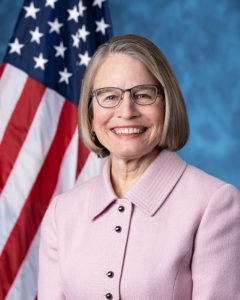On Thursday, the Biden Administration took another step toward dictating the medical choices of private citizens.
The November 4th ruling by the Department of Labor’s Occupational Safety and Health Administration (OSHA) requiring certain employers to develop mandatory vaccination policies will harm small businesses and exacerbate the current labor and supply chain crises.
The mandate would force businesses with 100 or more employees to require employees to be vaccinated or submit to weekly testing and wear a face-covering in the workplace. The rule, which will affect more than 80 million Americans, imposes $14,000 fines on employers for each violation. Along with the Administration’s policies paying Americans to not work, this rule will have a negative impact on the current labor shortage.
According to a September survey from the National Federation of Independent Business, a majority of small firms say they have job openings they are unable to fill. The Conference Board CEO Confidence survey showed that the percentage of companies stating they have difficulty finding qualified candidates went up from 57% in the second quarter of 2021 to 74% in the third. The Bureau of Labor Statistics ratio of open jobs to hires, which helps calculate the average time of hiring, is at a series high, as is the rate at which workers voluntarily quit their jobs.
Over the last year and a half, the current labor shortage has caused an unprecedented backlog in our supply chain. This has led to higher prices of consumer goods, and in many cases completely empty shelves at the grocery store. Global supply chains are breaking down, goods are backlogged at our seaports, and new shortages are sweeping the nation.
Large numbers of companies pointed to supply-chain constraints as a drag on earnings. There are growing signs that issues like port congestion, the difficulty in hiring truck drivers, slowing supplier deliveries, and rising costs for raw materials and components such as semiconductors are affecting the broader economy. These supply chain issues will only be exacerbated by the Administration’s policies.
As a doctor, former President of the Iowa Medical Society, and former director of the Iowa Department of Public Health, I have researched the efficacy and effectiveness of each of the three vaccines and I made my personal decision to get vaccinated. I have encouraged others to be vaccinated and administered vaccines across the Second District, but I still believe that vaccination should be a decision by the patient and their physician.
Americans should choose whether to be vaccinated, not forced.

Rep. Miller-Meeks Official Photo
Mariannette Miller-Meeks is a doctor and member of the House Education and Labor Committee who currently represents Iowa’s Second District in the United States House of Representatives.



